Natural Softness and Savings: How to Make Homemade Fabric Softener for the Washing Machine
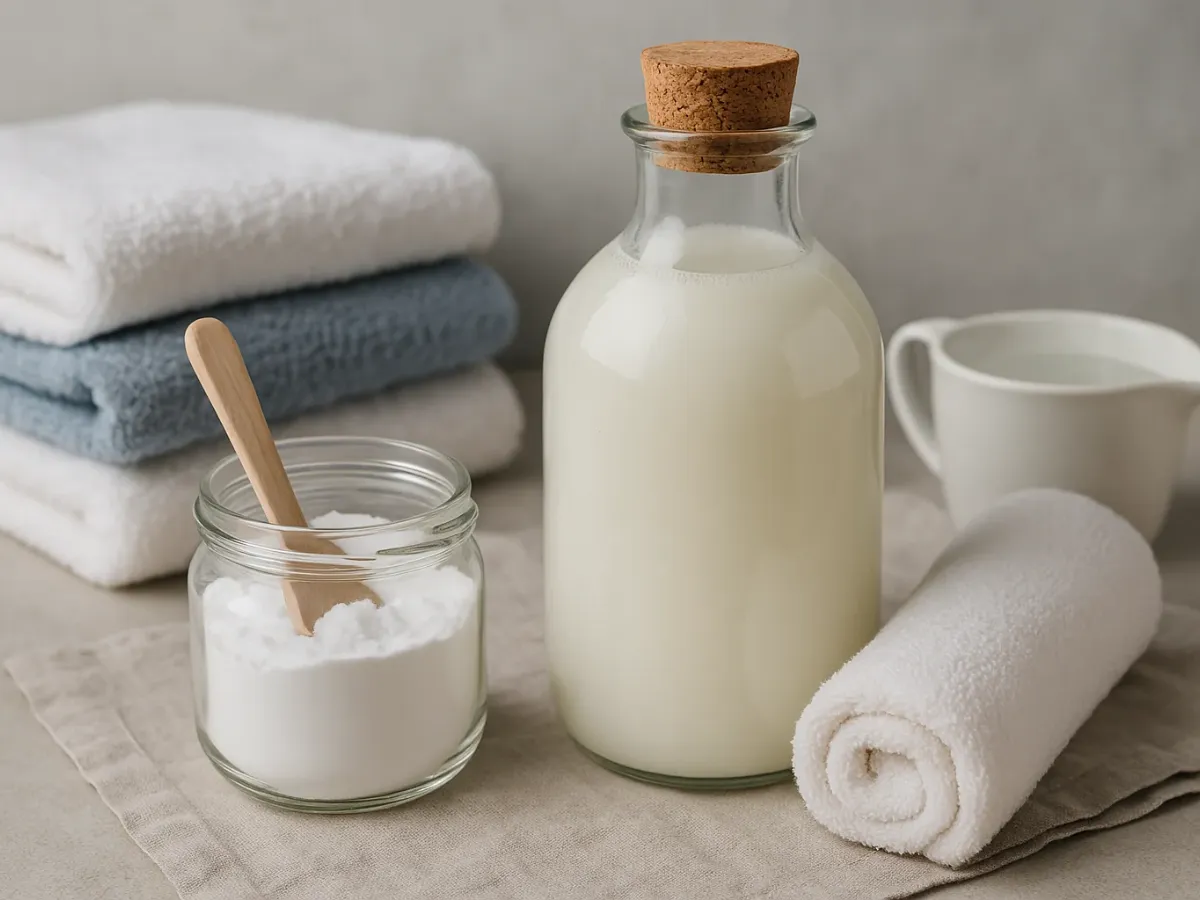
Looking for a more natural, budget-friendly, and eco-friendly alternative to commercial fabric softeners filled with chemicals and synthetic perfumes? You're in the right place! More and more people are choosing to make homemade fabric softener for the washing machine, a smart decision that not only benefits your wallet and the planet but also your skin, especially if it's sensitive or prone to allergies. And the best part: it's incredibly easy!
Commercial fabric softeners work by coating the fibers of your clothes with a thin layer of lubricating chemicals, which reduces friction and gives that soft feeling. However, these chemicals can build up, reduce the absorbency of towels, irritate the skin, and pollute water. Homemade alternatives, on the other hand, usually work by removing the detergent residues that stiffen clothes. Discover how to prepare your own formulas!
Advantages of Making Your Own Fabric Softener
Before getting to the recipes, let's review the benefits of this DIY (Do It Yourself) option:
- Economical: Basic ingredients like vinegar or baking soda are much cheaper than commercial softeners.
- Ecological: You avoid plastic packaging and reduce the amount of chemicals released into the environment.
- Hypoallergenic: Ideal for sensitive skin, babies, or people with allergies, as you control the ingredients and can avoid perfumes and dyes. Perfect to complement washing baby clothes.
- Removes Residue: Unlike commercial ones, vinegar-based homemade softeners help remove detergent buildup that weighs down and hardens fibers.
- Neutralizes Odors: Vinegar and baking soda are excellent natural deodorizers.
- Reduces Static: They help decrease static cling in clothes.
- Easy and Quick: Most recipes are prepared in minutes with common ingredients.
- Customizable: You can add your favorite essential oils for a natural scent.
Key Ingredients for Your Homemade Fabric Softener
Most recipes revolve around these pantry staples:
- Distilled White Vinegar (or Cleaning Vinegar): The undisputed star. Its acidity neutralizes the alkalinity of the detergent, dissolving residues and leaving fibers softer. Don't use other vinegars like apple cider or wine, they might stain!
- Baking Soda: Helps soften water (especially if it's hard), which improves detergent action and leaves clothes softer. It also deodorizes.
- Water (Distilled or Boiled and Cooled): Especially if you're preparing a mixture to store, using mineral-free water prevents spoilage or residue buildup.
- Essential Oils (Optional): To add a touch of natural fragrance (lavender, lemon, eucalyptus, tea tree...).
- Hair Conditioner (Optional, Specific Recipe): An alternative to mimic the texture of commercial softeners, but use with caution.
Recipe 1: The Foolproof and Super Simple Method - White Vinegar
This is the easiest, cheapest, and most effective way to replace commercial fabric softener.
- Ingredients: Distilled white vinegar or cleaning vinegar. Nothing else!
- Preparation: None. Just keep the bottle handy.
- How to Use: Pour directly into the fabric softener compartment of your washing machine approximately 1/4 to 1/2 cup (about 60-120 ml) per load. The machine will automatically add it during the final rinse cycle.
- Will Clothes Smell Like Vinegar?: NO! This is the most common question, but rest assured. The vinegar smell evaporates completely during the rinse and drying process, leaving clothes odorless (or with the faint scent of your detergent).
- Extra Benefits: Besides softening, it helps keep the washing machine pipes clean and helps set colors in dark clothes.
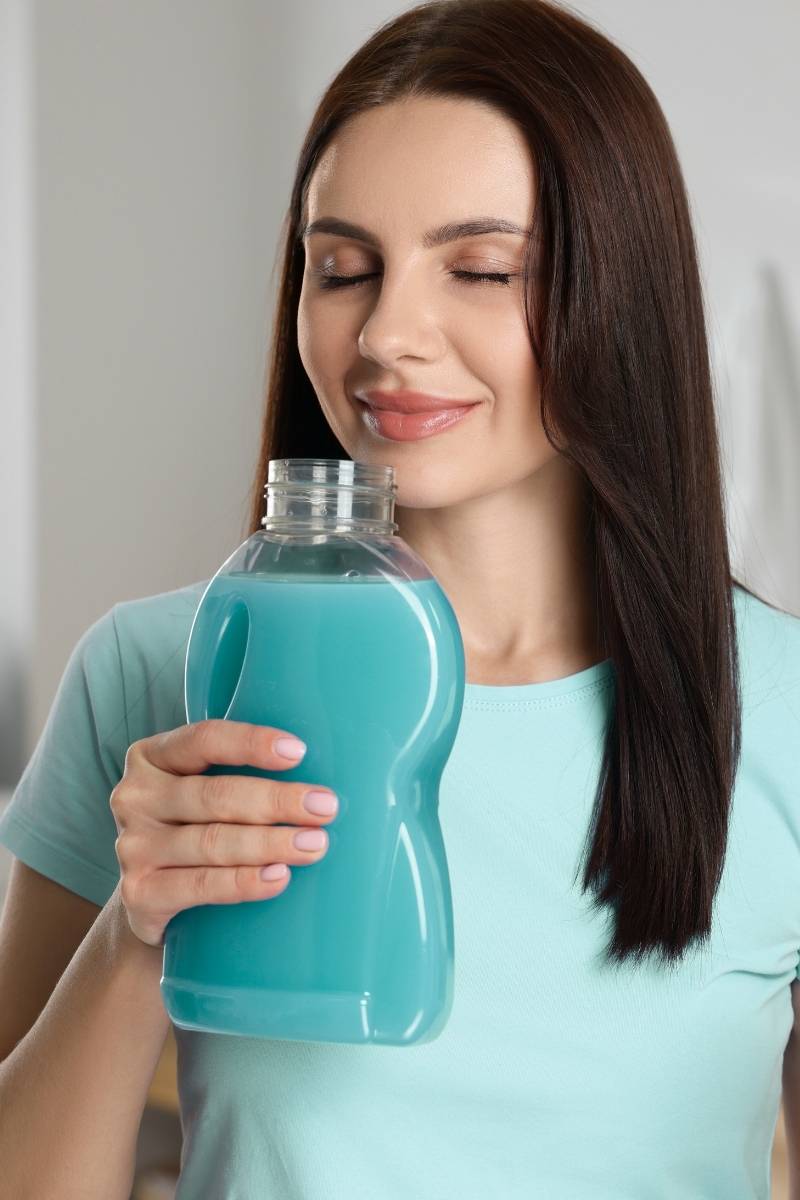
Recipe 2: Homemade Fabric Softener with Vinegar and Scent (Naturally Scented)
If you miss the perfume of fabric softener, this is your option.
Ingredients:
- 1 part White Vinegar
- 1 or 2 parts Water (distilled or boiled and cool if storing the mixture)
- 10-20 drops of Essential Oil per 500 ml (approx. 2 cups) of mixture (Lavender, lemon, orange, eucalyptus, tea tree...)
- Clean bottle for storage
Preparation:
- Mix the vinegar and water in the bottle. The water ratio depends on how much you want to dilute the vinegar (1:1 is common).
- Add the drops of your favorite essential oil.
- Close the bottle and shake well to mix.
Use:
- Always Shake Before Use: Oils tend to separate.
- Pour the same amount you would use of plain vinegar (60-120 ml / 1/4-1/2 cup) into the fabric softener compartment.
- Enjoy soft clothes with a subtle natural scent.
Recipe 3: The Softening Power of Baking Soda
While not a fabric softener in the strict sense, adding baking soda to the wash improves overall softness, especially in areas with hard water.
- Ingredients: Baking soda.
- How to Use: Add between 1/4 and 1/2 cup (approx. 60-120 g) of baking soda directly into the drum of the washing machine BEFORE adding clothes.
- Washing: Add your usual detergent to the dispenser and wash as normal.
- Benefits: Softens water, helps eliminate odors, and boosts the detergent's cleaning power, resulting in softer clothes.
- Combination: You can use baking soda in the drum and vinegar in the rinse for a combined effect.
Discover more about the benefits of baking soda for washing.
Recipe 4: Homemade Fabric Softener with Hair Conditioner (Commercial Type)
This recipe aims to mimic the texture and lubricating effect of commercial softeners, but using more controlled ingredients. Use with caution.
Ingredients:
- 1 part Hair Conditioner (choose a basic, cheap one with a mild scent, preferably silicone-free)
- 2-3 parts White Vinegar
- 4-6 parts Hot Water (not boiling)
- Large bowl for mixing
- Bottle for storage
Preparation:
- In the large bowl, pour the hot water and add the conditioner. Stir very well until completely dissolved and no lumps remain.
- Add the white vinegar and mix gently.
- Let the mixture cool completely.
- Pour into the storage bottle.
Use:
- Shake Well Before Use.
- Use a similar amount to a commercial softener (a capful, 60-100 ml / 1/4-1/2 cup) in the fabric softener compartment.
Caution: As mentioned, some conditioners contain silicones that, over time, could build up on fibers, especially on towels, reducing their absorbency. Use it sparingly or alternate with plain vinegar.
Important: When NOT to Use Fabric Softener (Even Homemade)?
There are garments for which fabric softener (commercial or homemade, especially those that aren't just vinegar) is not recommended:
- Towels: Drastically reduces their absorbency.
- Technical Sportswear: Clogs the pores designed for breathability.
- Microfibers: Can mat the fibers and reduce their cleaning/absorbency capacity.
- Waterproof Clothing: Damages DWR treatments and breathable membranes. See how to wash raincoats.
- Flame-Resistant Clothing: Can reduce its protective properties.
For these items, vinegar in the rinse cycle is the best option if you're looking for a bit of extra softness.
Frequently Asked Questions about Homemade Fabric Softener
How do you prepare homemade fabric softener for clothes?
The easiest way is to use white vinegar in the dispenser. You can also mix vinegar with water and essential oils, or use baking soda in the drum.
How can I make homemade fabric softener?
With white vinegar alone, vinegar with water and scent, baking soda, or a mixture of conditioner, vinegar, and water (use cautiously).
What can I use instead of fabric softener?
Distilled white vinegar (about 1/2 cup or 100ml) in the fabric softener compartment is the best natural and effective alternative.
What is the best natural fabric softener for clothes?
White vinegar is considered the best due to its effectiveness in removing residue, softening, and deodorizing without harming most fabrics or the environment.
Making homemade fabric softener is a fantastic way to care for your clothes, your skin, and the planet, plus your wallet! Experiment with these simple recipes and discover natural softness for your laundry.

Sebastián R.
More than 10 years at the helm of Lacolada Lavanderia Autoservicio Ponferrada and repairing industrial and domestic machinery in my spare time. You won't find unverified theories from the internet here, just real solutions tested by someone who gets their hands dirty every day.
More Laundry Tips
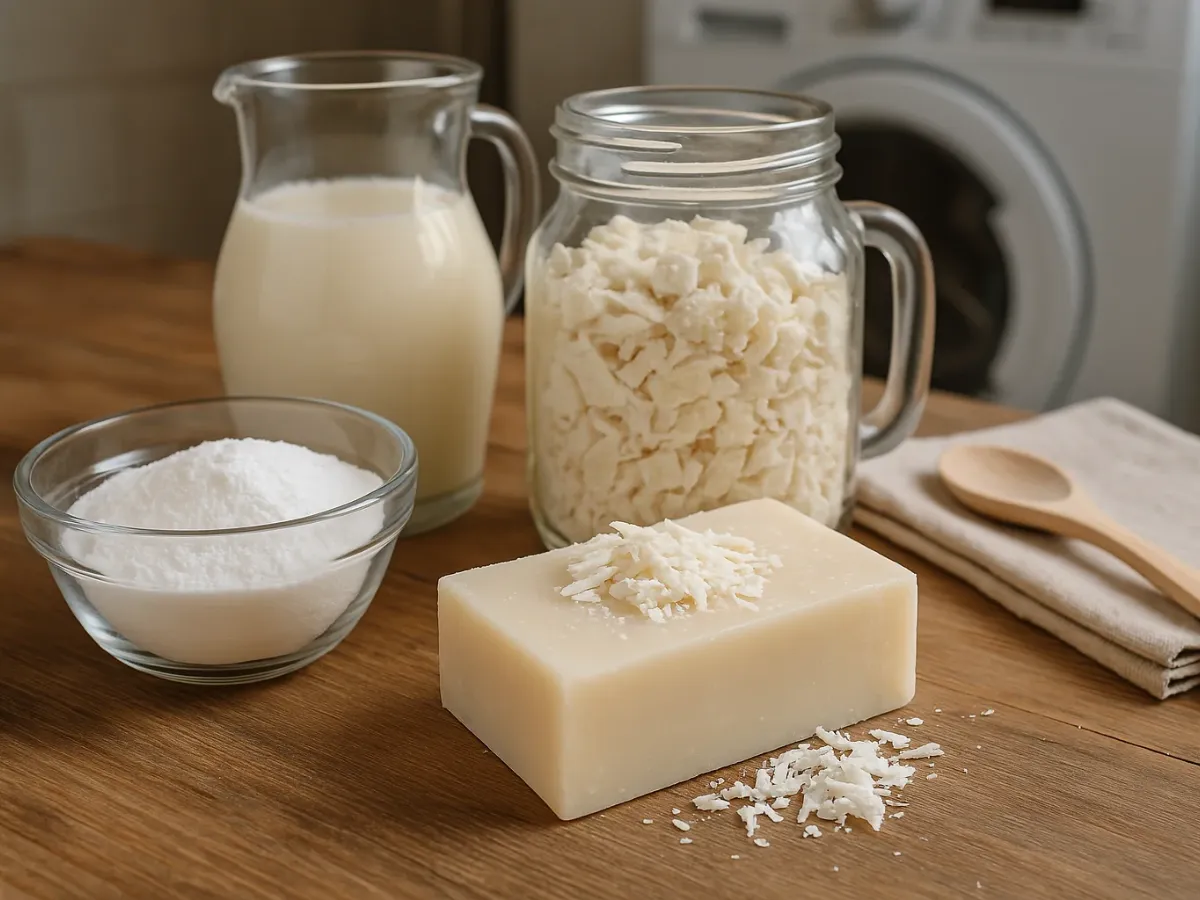
How to Make Homemade Laundry Soap (Liquid and Powder)
Easy recipes for a budget-friendly and eco-friendly detergent.
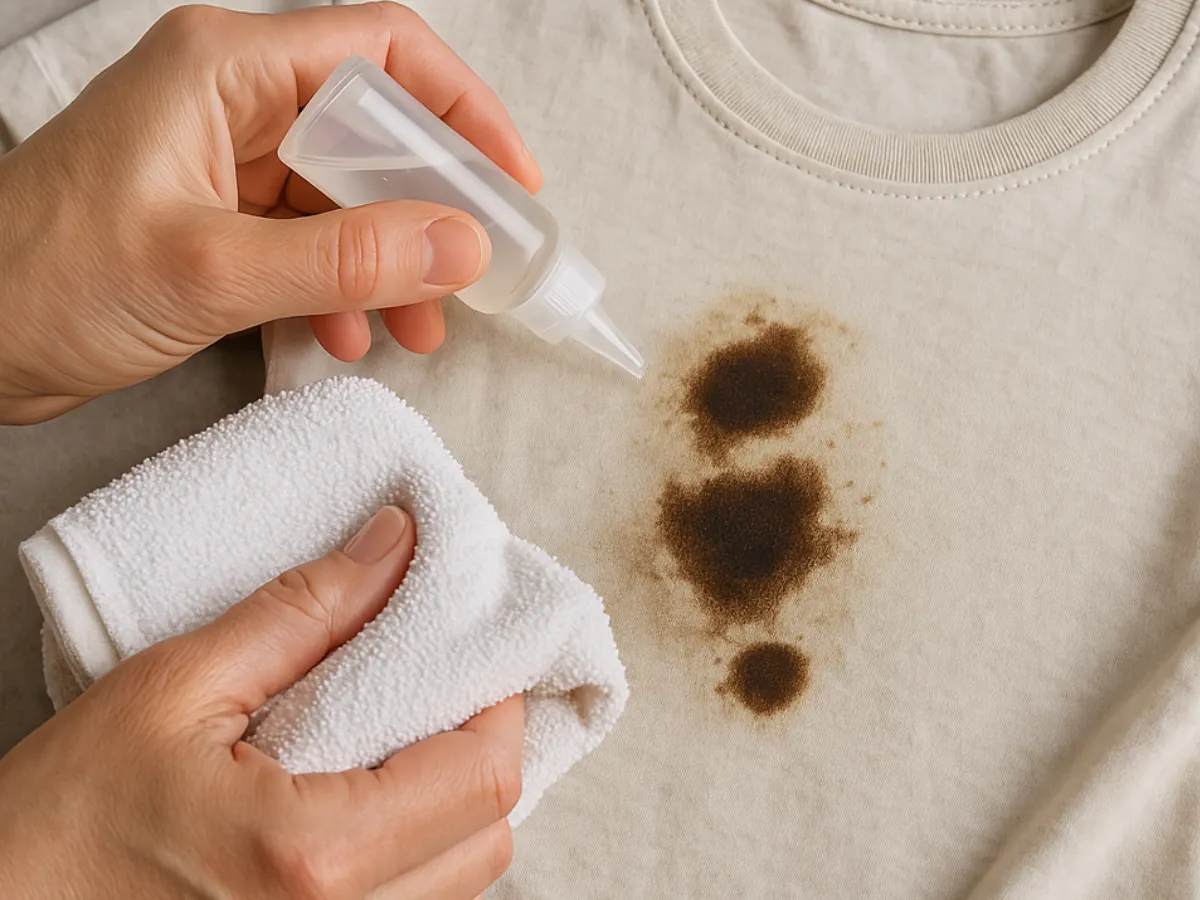
Removing Oil Stains Already Washed: Mission Possible
Effective tricks for those stubborn old grease stains.
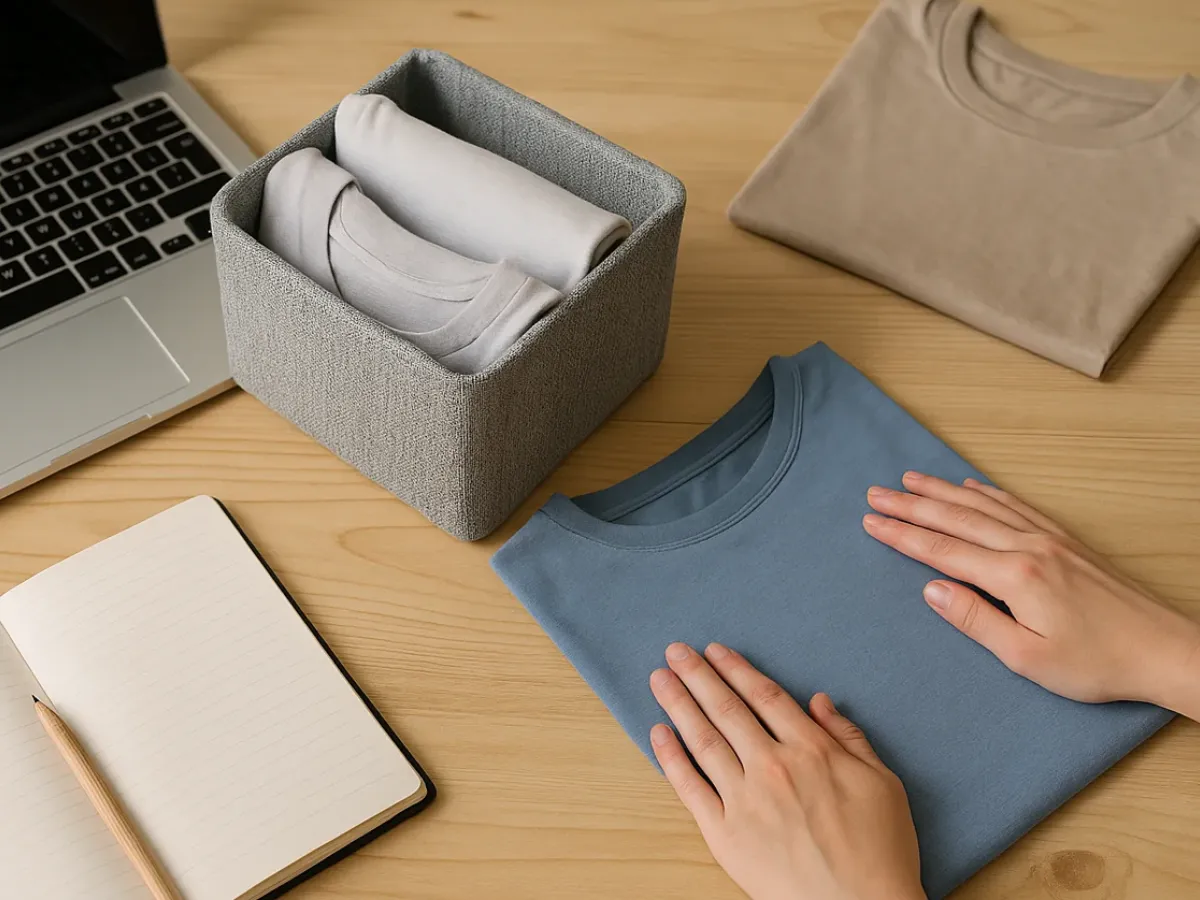
Fold T-shirts Easily with the Marie Kondo Method
Save space and keep your drawers tidy.